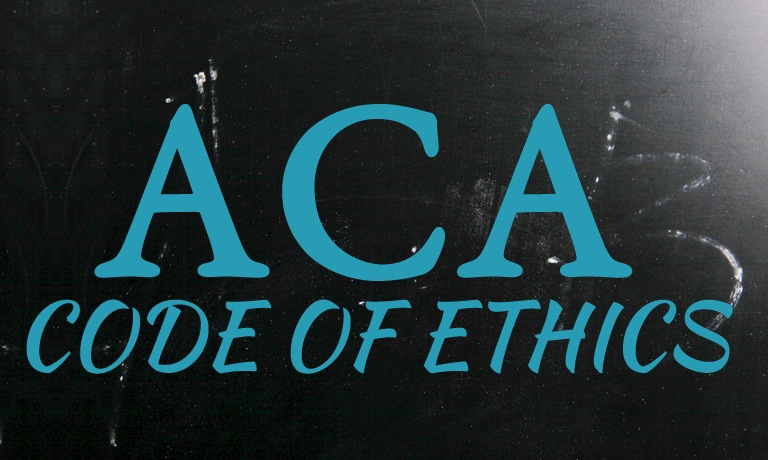
ACA Code of Ethics Purpose
The ACA Code of Ethics serves five main purposes:
1. The Code enables the association to clarify to current and future members, and to those served by members, the nature of the ethical responsibilities held in common by its members.
2. The Code helps support the mission of the association.
3. The Code establishes principles that define ethical behavior and best practices of association members.
4. The Code serves as an ethical guide designed to assist members in constructing a professional course of action that best serves those utilizing counseling services and best promotes the values of the counseling profession.
5. The Code serves as the basis for processing of ethical complaints and inquiries initiated against members of the association.
The ACA Code of Ethics contains eight main sections that address the following areas:
Section A: The Counseling Relationship
Section B: Confidentiality, Privileged Communication,and Privacy
Section C: Professional Responsibility
Section D: Relationships With Other Professionals
Section E: Evaluation, Assessment, and Interpretation
Section F: Supervision, Training, and Teaching
Section G: Research and Publication
Section H: Resolving Ethical Issues
Each section of the ACA Code of Ethics begins with an Introduction. The introductions to each section discuss what counselors should aspire to with regard to ethical behavior and responsibility. The Introduction helps set the tone for that particular section and provides a starting point that invites reflection on the ethical mandates contained in each part of the ACA Code of Ethics.
When counselors are faced with ethical dilemmas that are difficult to resolve, they are expected to engage in a carefully considered ethical decision-making process. Reasonable differences of opinion can and do exist among counselors with respect to the ways in which values, ethical principles, and ethical standards would be applied when they conflict. While there is no specific ethical decision-making model that is most effective, counselors are expected to be familiar with a credible model of decision making that can bear public scrutiny and its application.
Through a chosen ethical decision-making process and evaluation of the context of the situation, counselors are empowered to make decisions that help expand the capacity of people to grow and develop.
A brief glossary is given to provide readers with a concise description of some of the terms used in the ACA Code of Ethics.
